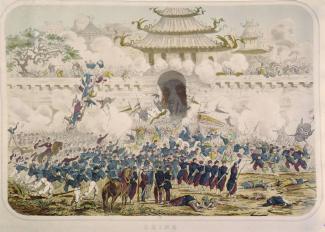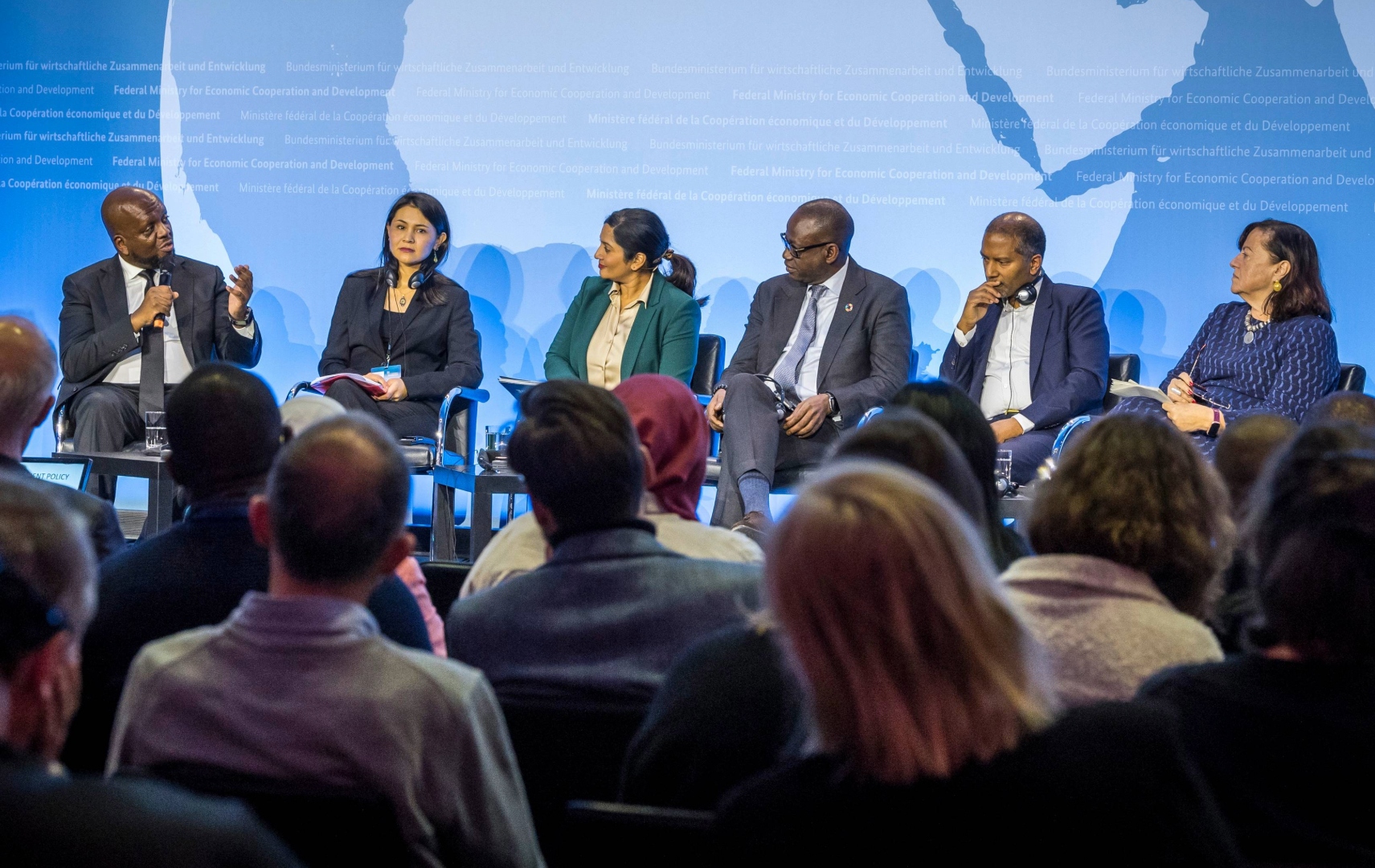Illicit drugs
How opium became a pillar of the British Empire

As colonial power, Britain forced poor farmers to grow poppies and then bought their produce at very low prices. It processed the harvest in order to export an innovative and highly addictive version of opium to China and, to a lesser extent, Southeast Asia. This drug trade made the British Empire strong and helped it to fund its expansion.
In a new non-fiction book, the Indian novelist Amitav Ghosh delves deeply into how opium shaped colonial rule and what the legacies are. To some extent, “Smoke and ashes” is based on his Ibis trilogy, a series of novels he wrote about the buildup to the First Opium War (1839 to 1842). However, he has also read historical studies that were published after he completed his trilogy. Ghosh proudly reports that, in two cases, the researchers explicitly stated that his novels inspired their work.
Utter cynicism
Ghosh is appalled by the colonial power’s blatant cynicism. Brits claimed that opium exports to China were necessary because they responded to Chinese demand. In truth, opium had not been a conventionally used drug there, and smoking the new addictive variety spread fast. The colonisers ostentatiously bemoaned Asians’ weak moral character which supposedly made them prone to addiction. At the same time, they made sure that the potent drug they sold them never became easily available in the mother country.
Indeed, the colonial power created the opium demand it then satisfied in China. The plain evidence is that opium exports increased extremely fast over a long period of time. Ghosh points out that the East India Company sold China a mere 200 chests of opium in 1729, and the number increased to 30,000 by 1830.
At that point, the Chinese empire decided to get a grip on the problem and eventually stopped the imports. In response, Britain went to war and forced China to allow the importation of this dangerous drug. The colonial power claimed to be acting on behalf of “free trade”. China even had to pay compensations for opium it had confiscated and destroyed before the war. Moreover, Britain claimed the island of Hong Kong and turned it into its trade hub in Pearl River Delta. In the Second Opium War (1856 – 1860), other European powers supported Britain, and the Chinese empire became a failed state in which opium was an essential commodity.
Free trade rhetoric, monopolistic action
While insisting on “free trade” in China, the East India Company systematically enforced a monopoly on the opium trade in Eastern India. There were no free markets where farmers might have bargained for the highest prices. The company ran a specialised bureaucracy, the Opium Department, which controlled the entire industry in what are now the Indian states of Uttar Pradesh, Bihar and West Bengal.
The system was so exploitative that farmers often had to sell their produce at a loss. As Ghosh argues convincingly, farmers therefore did what they could to sell some of their harvest on the black market. Penalties were harsh. The colonial power established a brutal system of control, which was, however, undermined by corruption. The system led to desperate poverty, which encouraged illegal activities that appeared perfectly legitimate in the eyes of the oppressed.
According to Ghosh, it is no coincidence that Bihar has a reputation of underdevelopment, organised crime and violence. In a similar sense, he argues that the strength of Marxism in Calcutta (now Kolkata) is linked to the fact that, in colonial times, the opium market was under strict state control there, even though it obviously had huge economic relevance.
The other Indian experience
There was, however, another Indian region where poppies were grown and opium became a crucial commodity, as Ghosh explains. It was in central Indian areas, in which the colonial power only imposed indirect rule without establishing an administration of its own. Nominally, regional monarchs were the lords of these “princely states”, but the British Resident, who represented the colonial power, was generally the most powerful person at their courts.
In some of these areas, many of which are located in what is now Madhya Pradesh, the opium industry took a foothold too. The Brits figured out that it would be hard to gain monopolistic control without imposing an administration of their own, but that they could easily benefit from the Indian drugs trade by taxing it. The result was that some Indian entrepreneurs thrived on opium – from the farm level to export businesses and shipping firms. For these people, opium did not mean misery, but opportunity. They used Bombay (now Mumbai) as their hub – and it is still independent India’s commercial centre today. In Ghosh’s view, these people’s complicity with the British Empire is one reason why there is a strong sense of animosity between India and China even today.
Ghosh elaborates that opium was the growth engine that turned Calcutta, Bombay, Singapore and Hong Kong into globally relevant centres of trade. Other imperial powers, very much including the USA, were involved in the drugs business too. Unsurprisingly, North American traders relied on free-market Bombay rather than monopolistic Calcutta. Other European powers made use of their Asian colonies.
In China, the inflow of opium proved disastrous of course. Masses of people became addicted. Traditional values and long-established institutions were eroded. Trust in systems of governance faded away, and so did faith in relatives and neighbours. Eventually, poppy cultivation was introduced in China too, making opium even more easily available. Europeans began to call China “the sick man of Asia”.
Erased memory of Chinese influence
Today, China’s leaders speak of a century of humiliation. This rhetoric makes more sense than most western people are probably aware of. Ghosh does an excellent job of showing how Chinese influences on western countries were made invisible. The Chinese empire was actually the model case of a modern nation state with a culturally homogenous people, a professional bureaucracy, a coherent system of governance and institutions of higher learning. Before the Opium Wars, Europeans had admired Chinese for these reasons. Afterwards, they made fun of its corruption and ineffectiveness, both of which they exploited and, to a large part, had brought about.
It is telling that the East India Company, as Ghosh writes, copied the Chinese model of meritocratic recruitment to the bureaucracy. Those who wanted to join its powerful ranks, had to prevail in a rather tough contest, competing with many other aspiring young persons. Britain later introduced similar contests at home. When masses of young people make huge efforts to succeed in the annual entry exams of the Indian Administrative Service these days, they are mostly unaware of this practice having originated in imperial China.
The international community owes historical China many other things too, of course. Tea is one of them. Its growing popularity in 18th century England actually contributed to the British empire eventually adopting its aggressive opium policy. At the time, only China produced this mild stimulant, and it insisted on being paid in silver. The reason was that it was self-sufficient and did not need any other goods that British traders could offer. As Britons ran out of precious metal, they discovered that they could export opium to China. As a result, the British Empire thrived, and the Chinese one became a failed state.
History shapes people’s mind sets. That different nations cherish – and pass on – different memories, can thwart mutual understanding and make international cooperation quite difficult.
References
Amitav Ghosh, 2024: Smoke and ashes. London, John Murray.
Ghosh’s Ibis trilogy consists of “Sea of poppies” (2008), “River of smoke” (2011) and “Flood of fire” (2015). The three novels were also published by John Murray.
Hans Dembowski is D+C/E+Z’s editor-in-chief.
euz.editor@dandc.eu

















